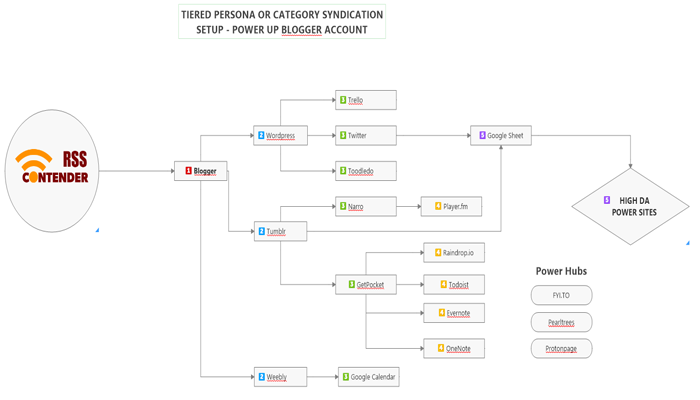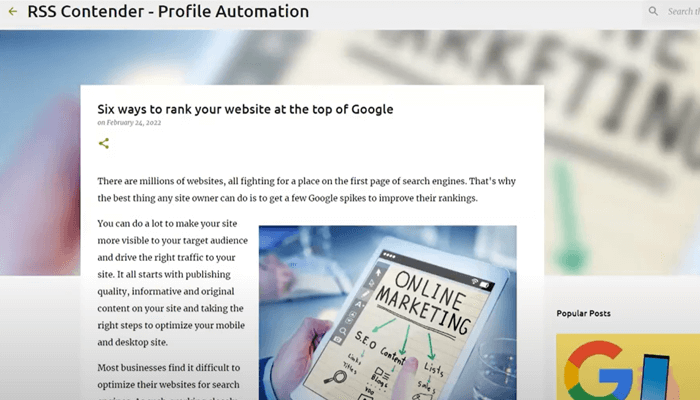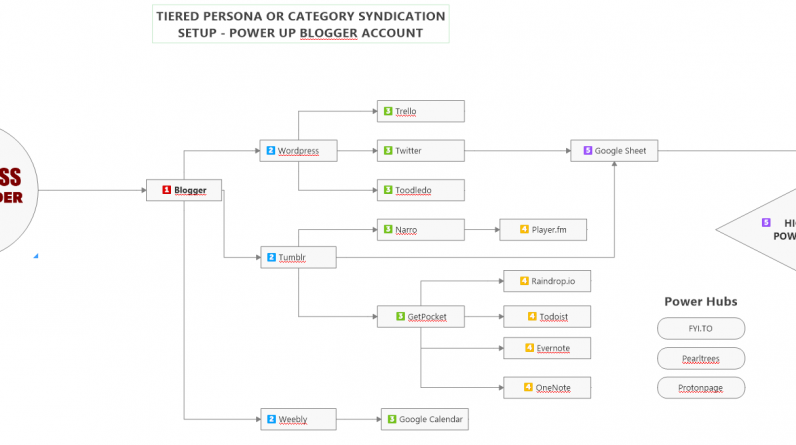
The explosion of digital content has made it challenging for online marketers to stand out. Amid the noise, RSS feeds have emerged as a powerful tool, providing a streamlined approach to content delivery and consumption. But what is an RSS feed, and how does it enhance your online marketing strategy? Let’s dive in.
Understanding RSS Feeds
RSS, an acronym for Really Simple Syndication, is a web feed that allows users and applications to access updates to online content in a standardized, computer-readable format. These feeds can aggregate content from various sources into one convenient location, making it easy for users to stay informed about their favorite websites without visiting each one individually.
The Value of RSS Feeds in Online Marketing
Ensuring Consistent Content Delivery
In online marketing, reaching your audience is crucial. With the help of RSS feeds, subscribers receive your new content directly, bypassing the unpredictability of social media algorithms. This means your audience stays informed and engaged, even amidst the busiest social media feeds.
Enhancing SEO Efforts
RSS feeds can positively impact your search engine optimization (SEO) strategy. Each time you publish content, your RSS feed updates, alerting search engines to crawl and index your new content. This leads to faster indexing and better visibility of search engine result pages (SERP).
Streamlining Content Curation
Content curation is a cornerstone of online marketing. RSS feeds simplify this process by delivering content from various sources directly to you, saving you time and effort in scouring the web for relevant content.
Amplifying Social Media Presence
RSS feeds can automatically update your social media platforms with fresh content, ensuring your presence remains dynamic and current. This automation reduces the workload and ensures consistency across all platforms.
Enhancing Customer Engagement
With an RSS feed, your audience can choose to subscribe and receive updates, promoting regular interaction with your content. This direct line of communication can enhance customer engagement and loyalty and potentially lead to increased conversion rates.
Providing Valuable Analytics
RSS feeds also allow gathering data on your audience’s engagement, such as which content they interact with most frequently. These insights can inform future content strategies, ensuring you deliver what your audience finds most valuable.
Leveraging RSS in Your Marketing Strategy
Despite the rise of various content delivery platforms, RSS feeds remain a reliable tool in online marketing. Their ability to ensure consistent content delivery, enhance SEO, streamline content curation, amplify social media presence, boost customer engagement, and provide valuable analytics make them indispensable in a successful online marketing strategy.
In an increasingly digital world, staying ahead means making the most available tools. Harness the power of RSS feeds and let your online marketing strategy thrive in the digital landscape.
Making RSS Feeds Work for You
Given their clear benefits, the question becomes: how can you effectively integrate RSS feeds into your online marketing strategy? Here are some practical steps.
1. Set Up Your RSS Feed
Firstly, if you still need to do so, you must set up an RSS feed for your website. Various platforms can help with this, including many free and premium options. Ensure your RSS feed is easily visible and accessible on your site, encouraging visitors to subscribe.
2. Promote Your RSS Feed
Promote your RSS feed across all your online platforms. Encourage your audience to subscribe to stay up-to-date with your latest content. You could offer exclusive content or early access to new products or services to RSS subscribers as an incentive.
3. Integrate RSS Feeds into Your Social Media Strategy
Many social media management tools allow you to integrate RSS feeds, enabling the automatic posting of your new content. This can save time and ensure a steady flow of fresh content on your social media platforms, keeping your audience engaged.
4. Use RSS Feeds for Content Curation
You can subscribe to RSS feeds from other relevant industry sources. This can be an excellent way to keep up with trends, gather ideas for your content, and share valuable information with your audience. Remember, sharing high-quality external content can position your brand as a thought leader in your field.
5. Monitor Your Analytics
Keep an eye on your RSS feed analytics to understand your audience better. Which content do they engage with the most? When do they typically read your updates? These insights can help shape your content strategy to meet your audience’s needs and interests better.
6. Optimize Your Content for RSS
Ensure your content is RSS-friendly. This means it should be engaging from the get-go. A catchy title and compelling introduction are crucial, as RSS readers will often only display the beginning of your content. Optimizing your RSS feed is essential for maximizing its potential in your marketing strategy. To do this, ensure that your content is engaging from the start, with catchy titles and compelling introductions, as many RSS readers only display the beginning of your content. Use relevant keywords strategically to boost SEO. Regularly monitor your analytics to understand what content resonates with your audience, and use this data to shape future content. Also, remember to make subscribing to your feed easy and intuitive for users. Optimizing your meal will enhance content delivery, increase audience engagement, and bolster your online marketing efforts.
Conclusion
RSS feeds are a powerful yet often overlooked tool in online marketing. By ensuring consistent delivery of content, enhancing SEO, streamlining content curation, amplifying social media presence, and providing valuable analytics, RSS feeds can be a game-changer in your online marketing strategy. With a better understanding of RSS feeds and their value in online marketing, you can harness their power to boost your brand’s online presence and engagement.






